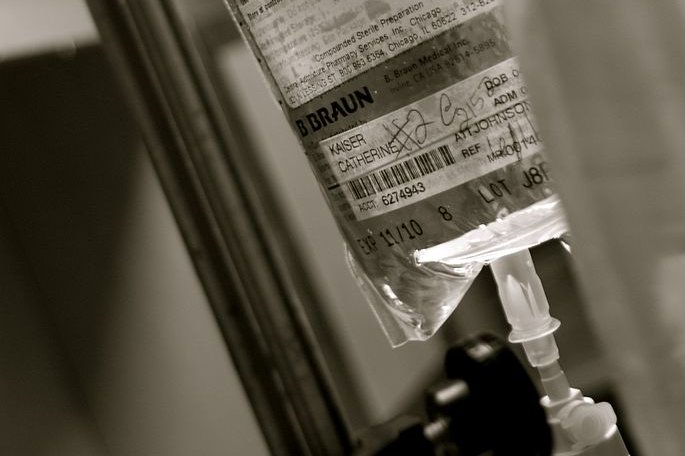A combination of drugs used in HIV, hepatitis C and MS may help some with COVID-19. File photo by Colin/Flickr
May 8 (UPI) -- A three-drug combination treatment appears to improve symptoms and shorten hospital stays for people with mild to moderate COVID-19, while making them less likely to pass the virus to others, a small study published Friday by The Lancet has found.
The research, performed in Hong Kong, involved 127 adults with the disease who received a combination of interferon beta-1b plus lopinavir-ritonavir and ribavirin.
Historically, ribavirin has been used to treat hepatitis C, while lopinavir-ritonavir was developed for the management of HIV, and interferon beta-1b initially was approved for multiple sclerosis.
"Our trial demonstrates that early treatment of mild to moderate COVID-19 with a triple combination of antiviral drugs may rapidly suppress the amount of virus in a patient's body, relieve symptoms and reduce the risk to healthcare workers," study co-author Dr. Kwok-Yung Yuen, of the University of Hong Kong, said in a statement.
The findings also suggest that the regimen "reduces the duration and quantity of viral shedding" -- or the period during which the virus is detectable and transmissible -- and is "safe and well tolerated by patients," he said.
The drugs are among several older prescription medications being evaluated to treat COVID-19. Others include the anti-malaria drug hydroxychloroquine and the antiviral remdesivir.
Earlier research found that a combination of oral lopinavir-ritonavir and ribavirin significantly reduced respiratory failure and death in patients hospitalized with severe acute respiratory syndrome, or SARS, during the 2003 outbreak.
Interferon beta-1b has been shown to reduce viral load and improve lung problems in animal studies of Middle East respiratory syndrome, or MERS, which also is a coronavirus infection.
For The Lancet study, Yuen and his colleagues administered 8 million IUs of injectible interferon beta-1b, plus 400/100 milligrams of lopinavir-ritonavir and 400 mg. of ribavirin to 86 adults with the virus within seven hours of their first showing symptoms. The patients continued to receive the regimen every 12 hours for 14 days.
Results in these study participants were compared to those achieved in 41 adults who received only lopinavir-ritonavir. In addition, all patients received standard care for COVID-19, which includes ventilation support, dialysis support, antibiotics and corticosteroids.
The researchers found study participants treated with the triple drug combination had no detectable SARS-CoV-2 in samples taken from the nose or throat within an average of seven days of starting the regimen.
Complete alleviation of symptoms occurred within an average of four days, and the patients were discharged from the hospital within an average of nine days.
In addition, researchers observed that 52 patients who started the combination treatment fewer than seven days after the onset of COVID-19 symptoms experienced better results than the 24 participants in the control group who received their treatment at the same time.
However, among those who were treated seven days or more after showing symptoms, there was no difference in results between the combination treatment and control groups.
Those on lopinavir-ritonavir, meanwhile, had detectable levels of SARS-CoV-2 up to an average of 12 days of starting treatment. Symptoms took an average of eight days to resolve, and the patients remained hospitalized for an average of roughly 15 days.
No difference in side effects between the two treatment groups was noted, and none of the side effects in the combination group -- diarrhea, fever and nausea -- was severe. None of the study participants died during the research.
"These findings suggest that interferon beta 1-b may be a key component of the combination treatment and is worth further investigation for the treatment of COVID-19," co-author Dr. Jenny Lo, of Ruttonjee Hospital in Hong Kong said.
"Interferons are naturally occurring proteins, produced in response to viral infection, and the hope is that interferon beta-1b will boost the body's ability to fight SARS-CoV-2."
None of the study participants had severe COVID-19, the researchers noted, adding that larger trials are needed to examine the effectiveness of the triple combination in critically ill patients.
"Despite these encouraging findings, we must confirm ... that interferon beta-1b alone or in combination with other drugs is effective in patients with more severe illness in whom the virus has had more time to replicate," Yuen said.















